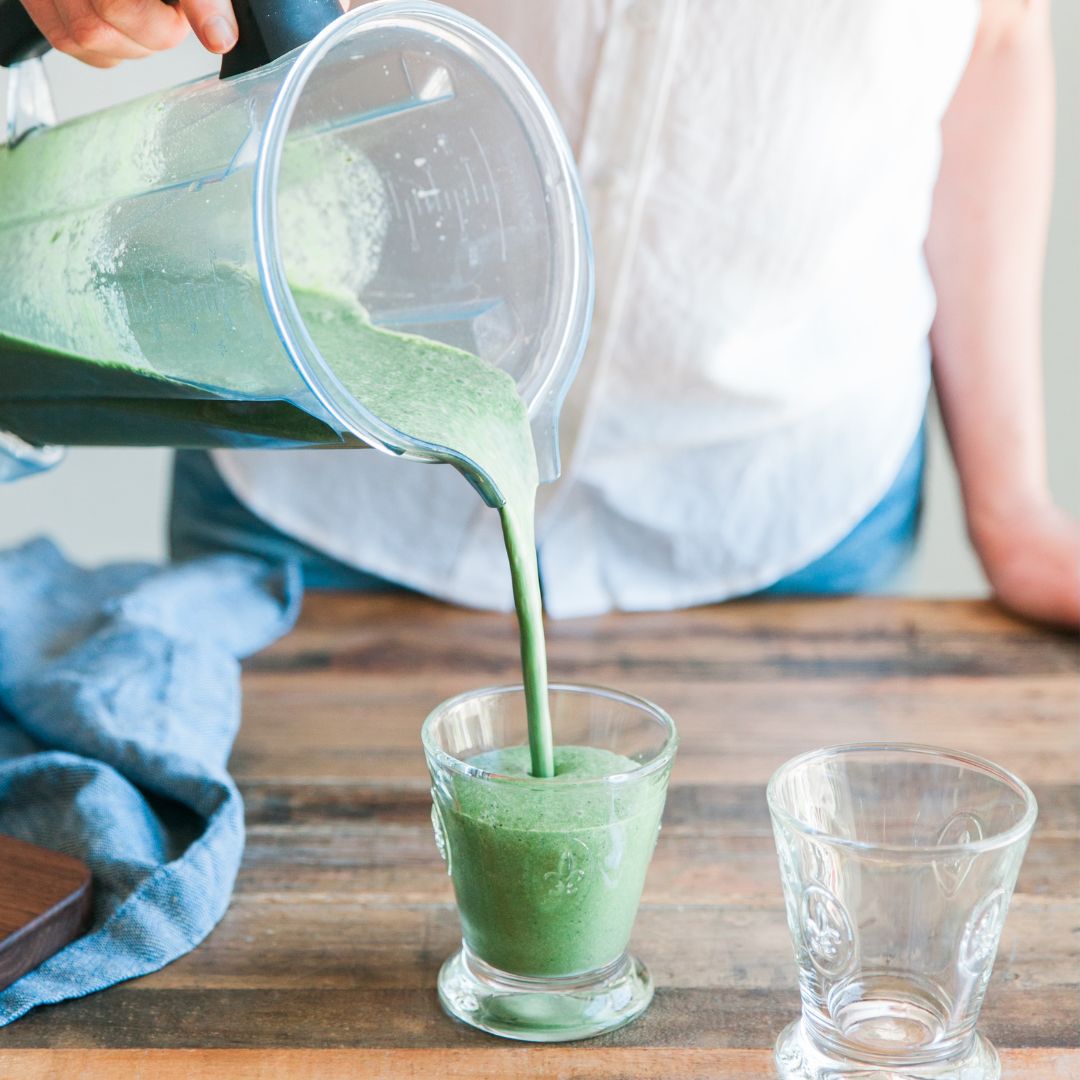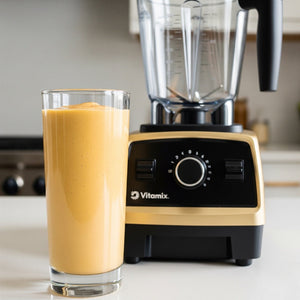Ingredients matter. And my guess is you’re here because, like me, you care deeply about them. You know that what goes into your food affects who you become and how you feel. And for those of us who are care taking for loved ones and little ones, we are the gatekeepers for what nourishes – or doesn’t – their bodies, too.
Ingredients are the heartbeat behind why I started the Be Well Protein Powder line. I couldn’t find anything that fit exactly my hopes and standards, so I raised the bar and made my own.
While I’m passionate about protein as a macronutrient, I’m equally concerned about its quality. Because protein can come from a number of sources – bovine, bone broth, whey, egg whites, pea, soy, and so on – quality can vary widely, including the heavy metal content in protein powders.
In this article, we’re deep-diving into protein powder ingredient quality and looking at heavy metals in particular. I’ll be sharing:
- How heavy metals show up in our food
- Prop 65 and heavy metal safety standards
- The intentionality + meticulous sourcing behind Be Well Protein
- Be Well Protein testing and safeguards
You deserve to feel supremely confident in the foods you eat and how you feed your family. I want to transparently address concerns, allowing you to grab your next bag of Be Well Protein with the peace of mind that it has been thoughtfully formulated with body-loving ingredients. And nothing more.
Heavy metals in our food – you might be wondering how it could ever happen. The answer is surprisingly simple. Heavy metals are actually everywhere. Not just buildings and structures, but in our earth and soil, too. Plants pull these heavy metals from the ground into their roots, stems, leaves, and fruit. Animals eat the plants, and we eat both the plants and the animals.
Some metals are good and necessary for our health. We know these as the minerals iron, magnesium, zinc, and copper to name a few. These are supportive of bone health, brain health, immune strength, hormone balance, and almost every enzymatic process in the body.
Other metals are not necessary and even toxic at relatively low levels in the human body. These include heavy metals such as lead, cadmium, arsenic, and mercury among others. At certain levels these metals have been linked to reproductive problems, developmental problems, and cancer.
It is an inevitable fact of nature that some amount of metals, both good and bad, will simply be found in the foods we eat. Because there is no real escaping it, this is where quality sourcing and common sense come into play.
My personal approach is to source the highest quality foods I can – fresh, organic, simple, and as close to the source as possible. And when going for packaged foods, I look for minimal, real food ingredients that have been sourced transparently and responsibly from brands I trust.
A NOTE ON PROP 65
It’s nearly impossible to discuss heavy metals and food without touching on California’s Proposition 65 (Prop 65). Prop 65, or the Safe Drinking Water and Toxic Enforcement Act of 1986, was passed in California and has gained much media attention recently.
It requires businesses to inform Californian consumers, through a warning, if their product could expose a consumer to any one of over 900 chemicals that are linked to adverse health outcomes, if that level of exposure is above a certain level. The levels that require disclosure are rigorous and significantly below the level that would cause harm to the average consumer or user of the product.
For example, for chemicals determined to be reproductive toxins, the No Observable Effect Level (NOEL) is the highest level of exposure that poses no harm to humans or animals. Prop 65 requires a warning when exposure level exceeds 1000x below the NOEL (California Code of Regulations, title 27, section 25801; also see source).
For context, products such as some organic fruits, vegetables, and fish can exceed Prop 65 acceptable thresholds for certain chemicals. They are, however, sometimes exempt from requiring a Prop 65 warning because the chemicals are, at times, determined to be “naturally occurring” or because the product is not consumed every day.
For lead, specifically, anything over 0.5 mcg lead per daily serving would require a Prop 65 warning, unless an exemption applies. The FDA published levels of many heavy metals in various foods in this study: FDA Total Diet Study (TDS) FY2018-FY2020 Report Supplement: Summary of Analytical Results, https://www.fda.gov/media/159751/download?attachment.
While it might feel unsettling to find that ordinary fruits and vegetables picked straight from the garden may contain trace amounts of heavy metals, we can rest assured that the benefits of eating fresh produce far outweighs the risk! A nutrient-dense, whole food diet that includes a wide variety of clean proteins, healthy fats, and fresh produce is always our best move for optimizing health. The Fab Four — protein, fat, fiber, and greens — are fantastic for not only balancing blood sugar, but unburdening the body in order to allow proper detoxification as well!
THE BE WELL STANDARD: QUALITY + TESTING
When consuming any food regularly, the conversation on quality must reach far beyond heavy metals. We must talk about sourcing, formulation, processing, and testing rather than simplifying a product down to its lead content.
When creating Be Well Protein Powders, I was committed to a finished product with minimal ingredients of the highest quality. But not only that. I wanted to be able to zoom in at every stop along the way and feel 100% confident in every step it took to get there.
Because I want you to consume and serve your Be Well Protein Powder as confidently as I do, I’m sharing some of the certifications, standards, and safeguards that go into every bag. It took a long time for this product to move from dream to reality because of an unwillingness to compromise on every level.
- Every single batch of Be Well Protein Powder is third party tested through a validated laboratory for purity and content, including: appearance, color, odor, flavor, heavy metals, pesticides, allergens (gluten, dairy, soy), and microbial content (yeast, mold, pathogens). Our product does not ship if it does not pass every single test and ultimately end up with a clean COA. Each batch of raw materials is tested to validate the quality of individual ingredients. Testing also occurs at the point of manufacturing in order to ensure the quality of the finished product.
- Our manufacturing facility stores, handles, and processes goods under strict cGMP, SOP, and SSOP processes. Using a certified cGMP manufacturing facility helps guarantee quality control methods and standards. cGMP stands for “Current Good Manufacturing Practices.” It is the gold standard for quality and safety in the food, drug, and supplement industry.
- Be Well Protein uses a non-chemical extraction process. While some other protein powders utilize the chemical hexane (or various other chemicals) in order to isolate and extract the protein, we use a water-based microfiltration method.
- We maintain stricter standards for heavy metals than even European dietary supplement limits allow. (And for context, European dietary supplement limits are set even lower than the American dietary supplement limits for heavy metals.) For example, US dietary supplement limits for lead, outside of Prop 65, are less than 10 parts per million (ppm) (see source). European dietary supplement limits for lead are set at less than 3 ppm.
- All Be Well Protein Powders are free of hexane, GMOs, soy, gluten, dairy, natural flavors, fillers, emulsifiers, and added sugars. Whether Be Well Plant-based or Be Well Grass-fed protein, you will find that all flavors and all varieties contain only 1-4 simple, real food ingredients. One of our highest principles is to create products with minimal ingredients of the highest quality. Why? We believe the more ingredients you add, the greater the chance for impurities, the greater the need for emulsifiers, the higher the chance at digestive upset, and the fewer people who have the potential to benefit.
A piece of feedback we consistently hear from customers? “Your protein powder is the only one my tummy can tolerate.” No bloat, gas, cramps, or discomfort.
- All Be Well Protein Powders use organic monk fruit only – no stevia, aspartame, sugar, sugar alcohols, or other sugar substitutes – to provide blood sugar-friendly and health protective subtle sweetening power. While organic monk fruit is the most expensive sweetener of choice (and only continues to increase with tariffs), it is a non-negotiable for me. Monk fruit boasts health protective benefits that no other sweetening agent can provide, making it worth the price tag.
- Grass-fed Be Well Protein Powder varieties are made using 100% grass-fed, grass-finished cows who roam freely in Sweden as its bovine protein source. While sourced from cows, this protein is 100% dairy free. It is a collagen-rich and complete protein source, containing all 9 essential amino acids. The water-based microfiltration process used for Grass-fed Be Well Protein yields naturally occurring collagen, around ~16g of collagen per scoop.
- Plant Based Be Well Protein Powder varieties are made using 100% natural, regenerative ground chocho bean from South America. This complete protein source is Keto, Paleo, and Vegan-friendly. It is free from lectins, phytates, and oxalates as well as tested and free of glyphosate. It also uses a water-based extraction process (as opposed to hexane/other chemical-based method). Regeneratively-farmed and lectin-free – Be Well Vegan Protein is a plant-based protein unlike any other.
If you’re interested in learning more about what makes Be Well Plant Based Protein entirely unique and a superior choice, check out Chocho Bean Protein: Everything you need to know and how to use this plant-based protein.
While I could expand on every single point above, I hope they serve as a testament to the intention, meticulousness, and high standards that go into each bag of Be Well Protein. I couldn’t be more proud of this product.
Be Well protein powder is the only one I use for my family. The only one I’ll consume while pregnant. It’s what I confidently grab to nourish myself and the people who are precious to me. That is perhaps the greatest vote of confidence I can give you – it’s something I use daily for myself and those I care about most.
THE BE WELL MISSION
My mission is to do good, and help others be better. I created the Be Well protein powder with exactly that in mind. I wanted to make it easy for you to blend up, bake up, or mix in a rich source of complete protein in order to reap the benefits of blood sugar balance, increased energy, sharper focus, and optimal nutrition.
My protein is ultimately meant to be a powerful tool that helps you feel your best so you can show up your best.
Be Well, friends.






